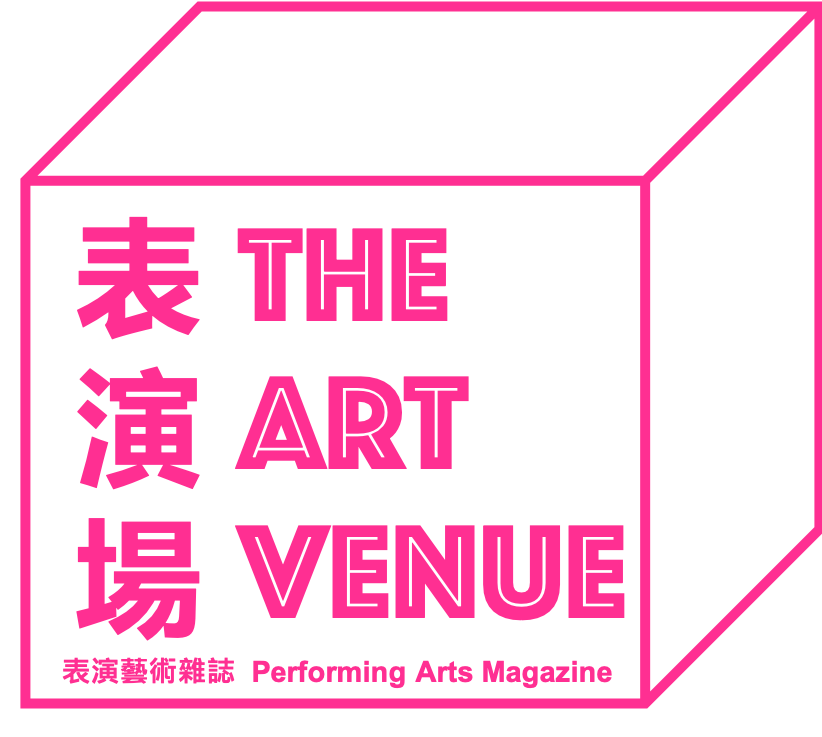表演場雙週刊第十一期 - 封面故事:與音樂家林丰談香港音樂未來 The Art Venue Bi-Weekly Issue 011 - Cover Story: A conversation with Fung Lam on the future of Hong Kong Music (20190801)
林丰,土生土長的香港作曲家,作品曾於世界各大音樂殿堂演出,包括紐約卡奈基音樂廳、柏林音樂廳、悉尼歌劇院、倫敦皇家阿爾伯特音樂廳、倫敦南岸中心等;亦以最年輕華人作曲家及首位香港作曲家之姿,獲得英國廣播公司(BBC)委約創作。於前年上任香港管弦樂團藝術策劃總監一職,最近為合約出現糾紛,引起各界關注。表演場訪問了林丰,了解他的新動向,並籍此透視香港藝術家遇上的難題。
表:是什麼令你如此喜愛音樂?
林:音樂是其中一種最虛幻的藝術形式,這是它最令人著迷的地方。它是以震動狀態,無形地存於空氣中,給予無限的想像空間。一篇樂章可以是敍事式的,有主題或情節,又或可以是完全虛幻的;但是,它們全都能夠觸動人心,激起情感,抑或創造想像空間,亦可以純粹是令你欣賞的音調結構。
表:在香港當音樂家一點也不容易,而且你是個古典音樂作曲家,難上加難,為什麼你會選擇這條路?
林:真的一點也不容易,不只是在香港。當我在英國讀大學的時候,原本打算在自己最熟悉、最能作出貢獻的方面,即交響音樂及當代古典音樂的範疇中,從事藝術行政的工作。後來,我在倫敦的音樂出版公司Boosey & Hawkes找到第一份工作,在推廣部負責推廣音樂及協調他們旗下作曲家的新委約作品,簡直是完美配合。期間,我仍繼續作曲及為新進作曲家尋找機會。當我約二十六歲的時候,覺得是時候要給自己的音樂一個機會,便辭去工作,看看有什麼會發生,即使未有任何安排。非常幸運地,一個月後,我便獲得由英國BBC安排的第一個專業委約工作。從此以後,慢慢地成為職業的作曲家。
表:由藝術家轉型成為管理人員,當中有什麼難處?你又如何克服?
林:我總覺得自己是個很「科學」的人,雖然似乎我藝術化的一面較容易讓人見到;所以對我來說,要在藝術創作與行政工作之間轉換思考的方向,是很自然而然的事─作曲是關於一個人以最好的能力及按其愛好,將不同的東西組織及結合起來,最後成為一個作品,這樣跟設計一個有不同內容的樂季很相似。起初我從事藝術行政工作,然後才成為作曲家,兩者的分別是,行政工作的思維可能是要接受很多不同的意見,然後學習及理解這些意見。有些人會給你有建設性及有意義的意見,但同時也有人會是為了自己的計謀而提出意見。最終我會做的,是明確按照澄明的良心,以及能真真正正裨益文化界的事。
表:你是音樂家,曾經跟BCC合作,又曾負責管理工作,亦是西九表演藝術小組的成員。香港的非主流音樂發展緩慢,即使有大量資源投入藝術界,而本地音樂家在海外已有名聲,似乎仍普遍未在香港得到重視,你認為有什麼方法可改變這種情況?
林:這是個非常有意義的問題。我認同香港在非主流音樂方面,仍然有很大的發展空
間;包括令到非主流音樂與生活更有連繫,及有更多展演機會。我認為原因之一,是香港非商業性質的電視頻道,只能提供極少的時間,讓非主流音樂可以曝光。惟有非主流音樂能夠得到更多來自公眾的注意及尊重,否則很難令非主流音樂的音樂家在香港得到機會和重視。另外,我在以前的訪問中有提過,作為或許是傳統的音樂家,我堅持作品質素的重要; 因此,作為藝術家,你需要在技藝上盡力追求完美,製作出具水準又有個人原創性的作品。接著,要與不同的本地主辦單位及機構連絡,將自己引薦到合適的人士。
表: 最後,你將會有什麼新發展?
林:我當了作曲家超過十年了,會繼續幹下去。我手上有幾個已落實的計劃,首先會有跟香港舞蹈團合作的作品《弦舞》,將會於香港文化中心劇場首演,這是我第一個舞蹈計劃。當然,我還有很多事情貢獻社會,對於香港,在音樂策劃方面,我正靜靜尋找機會。總括來說,除了創作音樂,我非常享受以音樂方式,將香港介紹給其他國際城市。
Fung Lam is the youngest Chinese composer and the first Hong Kong composer to be commissioned by the BBC. Lam’s music has been performed in some of the most prestigious venues in the world, including Carnegie Hall in New York, the Konzerthaus in Berlin, the Sydney Opera House, the Royal Albert Hall, and the Southbank Centre in London. Lam’s recent contractual conflict with the Hong Kong Philharmonic Orchestra received much attention in the arts sector. The Art Venue interviewed Lam to understand his upcoming plans and to examine some of the challenges that Hong Kong artists face.
Chan: What draws you to music?
Lam: One of the most attractive things about music is it abstractness. Music exists in the air – through vibration – and there is much space for imagination. A piece of music can have a narrative, with some sort of theme or storyline, or it can be completely abstract. It can move people, evoke emotions and feelings, or create space for contemplation. It can also simply be a sonic sculpture that you can admire.
Chan: Being a musician is not easy in Hong Kong. You are a classical music composer, which makes it even harder. Why did you take this path?
Lam: It is not easy at all. Indeed, it is not easy not only in Hong Kong. I had planned to work in art administration when I was at university in England. I wanted to work in a field related to orchestral music and contemporary classical music. These are two areas in which I have the most knowledge and I can contribute the most. My first full-time job was a perfect match. I worked in the promotion department at Boosey & Hawkes, a music publisher in London, promoting music and coordinat- ing the new commissions by their house composers.
During that time, I kept composing and seeking opportunities for emerging composers. Then, when I was around 26, I felt it was time to give my music a chance. So, I quit my job without even having anything lined up. Fortunately, my first professional commission came within a month. It was from the BBC for an orchestral commis- sion. From there, a so-called career gradually emerged.
I chose to pursue a composing career, because I love the creative process. Creating original works is a joy. I felt that I had something original to contribute and that my music was beginning to attract some positive attention. The experience of having my music performed by some of the world's best performers is very special.
Chan: What are the challenges for an artist to take up a management role? How do you cope with them?
Lam: I have always felt that I am a “scientific” person, but my artistic side seems to have garnered more attention. Switching between artistic creation and administration is quite natural to me. Composing is about organising and putting different things together to the best of the composer’s ability and according to the composer’s personal preferences to produce a final work. This is not very different from organising an orchestral season, which requires coordinating all of the different elements. I worked as an art administrator before I began working as a composer. One difference between the two roles would be that, when I was an administrator, I received many opinions from others that I needed to learn how to process. Some people have constructive and meaningful comments, while others have selfish agendas. Ultimately, I make sure that my conscience is 100% clear, and I do what I consider to be genuinely good for the cultural scene.
Chan: You are currently a member of the Performing Arts Committee of the West Kowloon Cultural District Authority. You worked for the BBC Orchestra as a musician and have experience working in management. The development of non-mainstream music in Hong Kong seems slow. Even though resources have been put into the arts sector and some local artists are recognised internationally, non-mainstream music has yet to receive mass appreciation in Hong Kong. How can we change the situation?
Lam: That is the million-dollar question! I agree that there is much space for improvement, such as making non-main- stream music more relevant to the people and giving it more prominence. One reason why cultural activities, arts, and non-mainstream music are not more popular in Hong Kong is that they have limited exposure on non-commercial TV channels. Unless non-mainstream music gets more attention and respect from the public, it will be difficult for non-mainstream musicians to get opportunities and recognition in Hong Kong. On the other hand, as I have said in other interviews, as a classically trained artist, I know that quality matters. It is important for artists to hone their craft and produce works of quality and originality. It is also important for musicians to introduce themselves and connect with the right local presenters and organisations.
Chan: Lastly, what is next for you?
Lam: I have been working as a composer for more than a decade, and I will continue to do so. I have some substantial projects lined up. My next project will come in mid-August. My collaboration with the Hong Kong Dance Company in a production entitled Dance of Strings will premiere at the Studio Theatre at the Hong Kong Cultural Centre. It is my first dance project and a refreshing project to take part in!
And, of course, as I said, I still have much to offer to the world and to Hong Kong in terms of programming, so I will be looking for curating opportunities. In addition to making music, I also enjoy introducing and bringing music to a world-class city like Hong Kong and from Hong Kong to the world.

